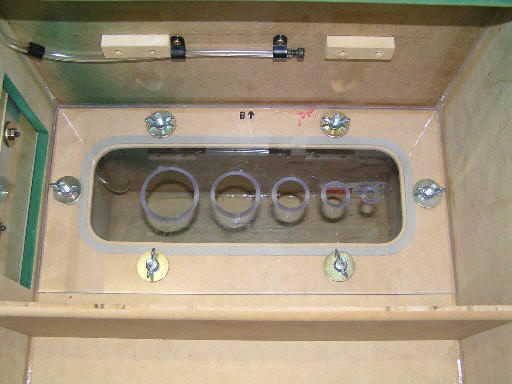I built a bench roughly following this design last year:
http://www.dtec.net.au/Flowbench%20Design%20Guide.htm
I've never been happy with it, and wanted to build a new one over this summer, still using water manometers.
I've seen (on here) a design which uses a table over the top of the orifice plate, which I will employ in my new bench.
Question is; where should I be mounting my pressure tapping's?
In the old bench they look like this.

I'm not convinced that this is accurate.
I was thinking of using tubing like an annubar, and wrapping it around the legs of the table in a circle.
Thoughts?
Any pictures of your set ups would be cool.
Varnish
